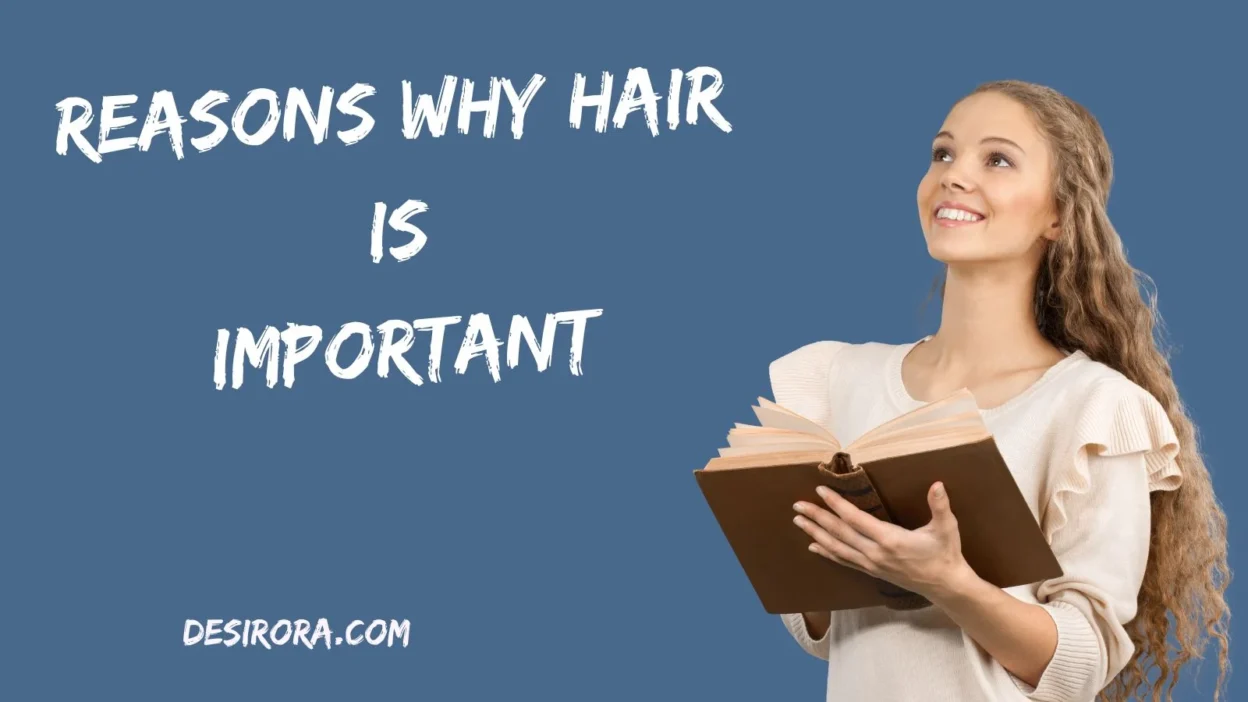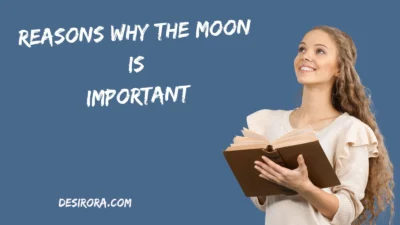Hair plays a bigger role in our lives than most people realize. It’s more than just strands growing from our heads — it’s a reflection of health, confidence, and personal identity. From keeping us warm in winter to helping us express who we are, hair shapes how we feel and how the world sees us. Whether straight, curly, thick, or fine, every type of hair tells a story about our culture, emotions, and lifestyle. Understanding the reasons why hair is important helps us appreciate not just its beauty, but also its biological purpose and emotional impact.
Understanding the Role of Hair in Our Lives
Hair isn’t just something we style or cut — it’s a living, expressive, and protective part of our body that plays biological, emotional, and social roles. While most people think of hair as a beauty feature, it’s deeply tied to health, self-image, and even cultural identity.
From the strands on your scalp to the fine hairs on your arms and face, every single follicle has a purpose. Hair connects us to our past, signals who we are, and helps us navigate daily life in subtle ways.
Biological Functions of Hair
Protection & Regulation
Hair serves as a natural protector.
- Scalp hair shields the head from UV radiation and harsh sunlight.
- It helps regulate temperature by keeping the head warm in cold weather and providing shade in heat.
- Eyelashes and eyebrows protect the eyes from dust, sweat, and sunlight.
- Nasal hairs filter the air we breathe, keeping debris out of our lungs.
Indicator of Health
Hair is often referred to as the “mirror of health.” When your body lacks nutrients or faces hormonal imbalance, your hair shows it first. Dryness, brittleness, thinning, or slow growth can indicate internal imbalances like stress, vitamin deficiencies, or poor diet.
Evolutionary Purpose
In evolution, humans retained scalp hair for protection and signaling. Long, healthy hair has often symbolized fertility, vitality, and youth. Body hair helps with tactile sensations, warning us of insects or temperature changes.
| Function | Description | Why It Matters |
| UV & Heat Protection | Scalp and facial hair shield sensitive skin | Prevents damage from the sun and temperature changes |
| Filtration | Eyelashes & nasal hair trap particles | Keeps eyes and lungs clear |
| Thermoregulation | Hair traps or releases heat | Maintains body temperature |
| Health Indicator | Reflects nutrition and wellness | Signals internal balance or stress |
Hair as a Reflection of Health & Well-Being
Healthy hair isn’t just attractive — it’s evidence that your body is functioning well.
Physical Health Connection
Shiny, strong hair often means your diet provides enough protein, vitamins (especially biotin and vitamin E), and hydration. Conversely, brittle or thinning hair may suggest deficiencies or hormonal changes.
Emotional Connection
Our hair can influence how we feel about ourselves. A good hair day boosts confidence, while damaged or dull hair can affect self-esteem. The connection between hair and emotion runs deep — it’s often one of the first things people notice about us.
Hair Care as a Wellness Habit
Caring for your hair is self-care. It’s not just about vanity — washing, conditioning, and nourishing your hair help you relax, establish routine, and express self-respect.
Simple Habits for Healthy Hair:
- Wash your hair with products suited to your scalp type.
- Avoid overusing heat tools like straighteners or dryers.
- Eat foods rich in proteins, omega-3, and iron.
- Get regular trims to prevent split ends.
- Massage your scalp to improve circulation.
Hair’s Impact on Identity, Culture & Self-Image
Personal Identity
Hair tells the world who you are — playful, bold, traditional, or minimalistic. Changing your hair often represents transformation. A new hairstyle can mark a new beginning, a career change, or a boost in confidence.
Cultural Meaning
Across cultures, hair holds powerful symbolism. In some traditions, long hair represents strength and freedom. In others, cutting or covering hair signifies humility or religious devotion. Braids, locs, turbans, or dyed streaks — every culture has unique meanings tied to hair.
Psychological Importance
Hair shapes self-image and personal boundaries. Losing or changing hair can feel like losing a part of one’s identity. That’s why people recovering from illness or hair loss often describe growing their hair back as regaining confidence.
Real-Life Connection
- A bride may style her hair in a traditional way to honour her heritage.
- Someone may shave their head as a symbol of fresh start or empowerment.
- Young people often experiment with bold colours to express individuality.
Hair’s importance lies in its ability to represent who we are — physically, socially, and emotionally.
Everyday Practical Uses of Hair
Beyond beauty, hair serves simple yet vital functions:
- Temperature control – Hair insulates heat during cold weather and prevents direct sunburn during summer.
- Sensory function – Fine hair on the skin detects subtle movements and sensations.
- Protection – Eyelashes, eyebrows, and nose hairs act as shields against dirt and dust.
- Expression – Hair is a natural medium for self-expression — styles, colours, and cuts all tell a story.
- Confidence boost – Groomed hair often contributes to a polished, professional appearance.
Hair enhances not only our physical comfort but also our social interactions and self-perception.
Types of Hair and What They Tell You
Scalp Hair Types
Hair texture varies from straight to wavy, curly, and coily — each type with its unique pattern and care needs. Recognizing your hair type helps choose the right products and techniques.
Hair Texture Categories:
- Straight Hair: Shiny, smooth, but can get oily easily.
- Wavy Hair: Balanced texture, prone to frizz.
- Curly Hair: Dense curls needing moisture and gentle detangling.
- Coily Hair: Tight curls that require deep hydration.
Hair Condition Indicators
| Hair Condition | What It Means | Suggested Care |
| Shiny & Strong | Good nutrition & hydration | Maintain with balanced diet & regular care |
| Dry & Brittle | Damage or nutrient deficiency | Use hydrating oils, avoid harsh heat |
| Thinning | Stress, hormones, or genetics | Gentle handling, scalp massage, check diet |
| Oily | Overactive sebaceous glands | Balance washing frequency, light shampoo |
Body Hair
While scalp hair is most visible, body hair has its role too. Arm, leg, and facial hair help protect skin and maintain temperature. Their thickness and growth patterns are influenced by genetics and hormones.
How to Respect and Support Your Hair
Daily Hair Care Routine
Your hair routine doesn’t have to be complicated — just consistent.
- Use mild shampoo and a nourishing conditioner.
- Don’t wash too frequently; it strips natural oils.
- Let your hair air-dry when possible.
- Protect your hair from direct sun and pollution.
- Avoid tight hairstyles that pull on roots.
Nutrition for Hair Health
Hair thrives on a diet rich in:
- Protein: Builds keratin, the main structure of hair.
- Iron & Zinc: Prevents thinning and breakage.
- Biotin & Vitamin E: Improves strength and shine.
- Omega-3 Fatty Acids: Keeps scalp hydrated.
Scalp Care
Healthy hair starts with a healthy scalp. Regular cleansing removes buildup, while gentle massaging improves circulation. Essential oils like rosemary or peppermint oil can stimulate follicles naturally.
Mental & Emotional Care
Your emotional state also affects your hair. Stress hormones can slow growth and even trigger hair fall. Managing stress through rest, hydration, and relaxation helps keep your hair in balance.
Real-Life Examples of Hair’s Importance
- Job Interviews: A tidy hairstyle enhances professional image and confidence.
- Cultural Ceremonies: Many communities include hair grooming, braiding, or covering in rituals.
- Personal Healing: After illness or loss, cutting or regrowing hair symbolizes strength and recovery.
- Social Influence: Celebrities and influencers inspire millions through signature hairstyles that become part of their personal brand.
- Gender Expression: Hair helps individuals express identity, from masculine fades to feminine curls or androgynous cuts.
Hair tells stories — personal, social, and emotional — that words sometimes can’t.
Why Hair Is Emotionally Important
Hair often connects with our sense of confidence, control, and creativity. It’s something we can change to reflect how we feel inside. When people go through major transitions, they often change their hair as a physical marker of emotional growth.
Hair loss, on the other hand, can deeply affect emotional well-being. It’s why many support groups and treatments emphasize both medical and psychological care — because hair is tied to how people perceive themselves and their worth.
In this sense, hair represents resilience, renewal, and self-acceptance.
Summary Table — The Many Roles of Hair
| Aspect | Importance | Impact |
| Biological | Protection, temperature control, filtration | Keeps body balanced and healthy |
| Psychological | Boosts confidence, self-expression | Improves mood and emotional health |
| Cultural | Symbol of identity and belonging | Strengthens community and heritage |
| Practical | Sensory and stylistic roles | Supports hygiene, professionalism |
| Health | Reflects internal wellness | Early sign of physical imbalance |
Conclusion
Hair is far more than a cosmetic feature — it’s a living part of who we are. It shields us from the environment, reflects our inner health, and expresses our individuality. From biological necessity to emotional expression, hair tells the story of humanity itself.
Whether it’s styled in curls, waves, locs, or left natural, your hair deserves attention and respect. When you nurture it, you nurture yourself — body, mind, and identity together.
So, take a moment today to appreciate your hair — not for how it looks, but for everything it does silently for you every single day.
FAQs
Q1. Why is hair important to humans?
Hair protects the scalp, reflects health, and plays a huge role in personal identity and self-expression.
Q2. How does hair relate to health?
Changes in hair texture, shine, or growth often signal changes in nutrition, hormones, or stress levels.
Q3. Why does hair affect confidence?
Because it’s one of the most visible features of your appearance — healthy, well-styled hair can make you feel more confident and in control.
Q4. What are the most important steps in hair care?
Balanced washing, conditioning, regular trims, sun protection, and nutrient-rich diet are key.
Q5. Can emotions or stress cause hair problems?
Yes. Chronic stress can disturb hair growth cycles and lead to shedding or thinning. Managing mental health benefits both your mood and your hair.

Thomas Hardy is a passionate innovator and thoughtful leader, dedicated to transforming ideas into lasting success. With creativity and purpose, he brings vision and authenticity to everything he does.



